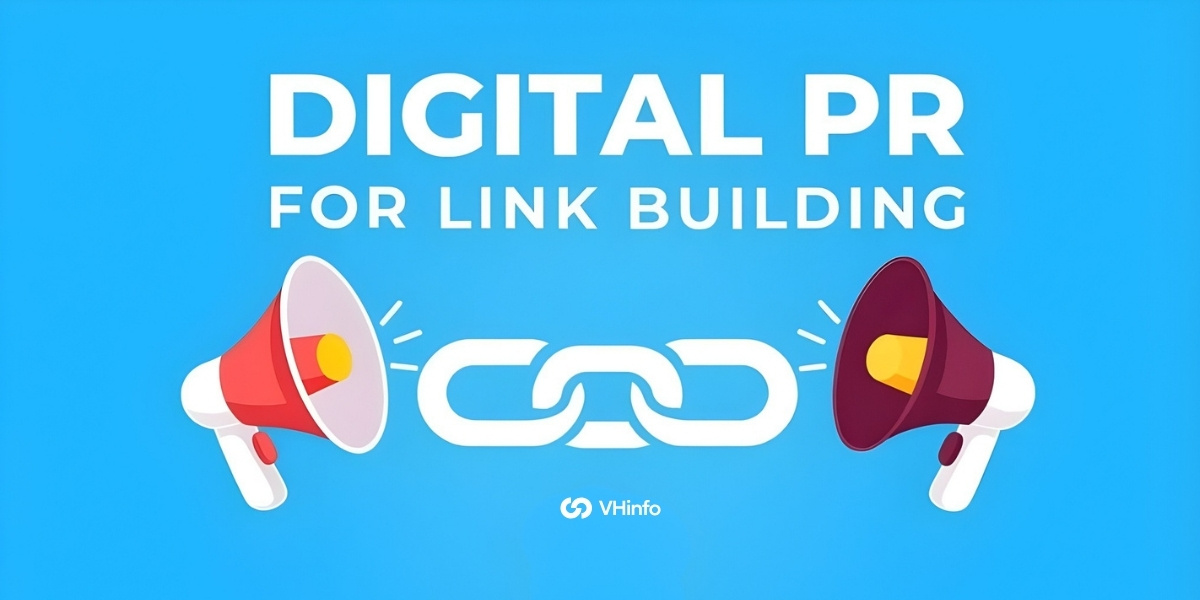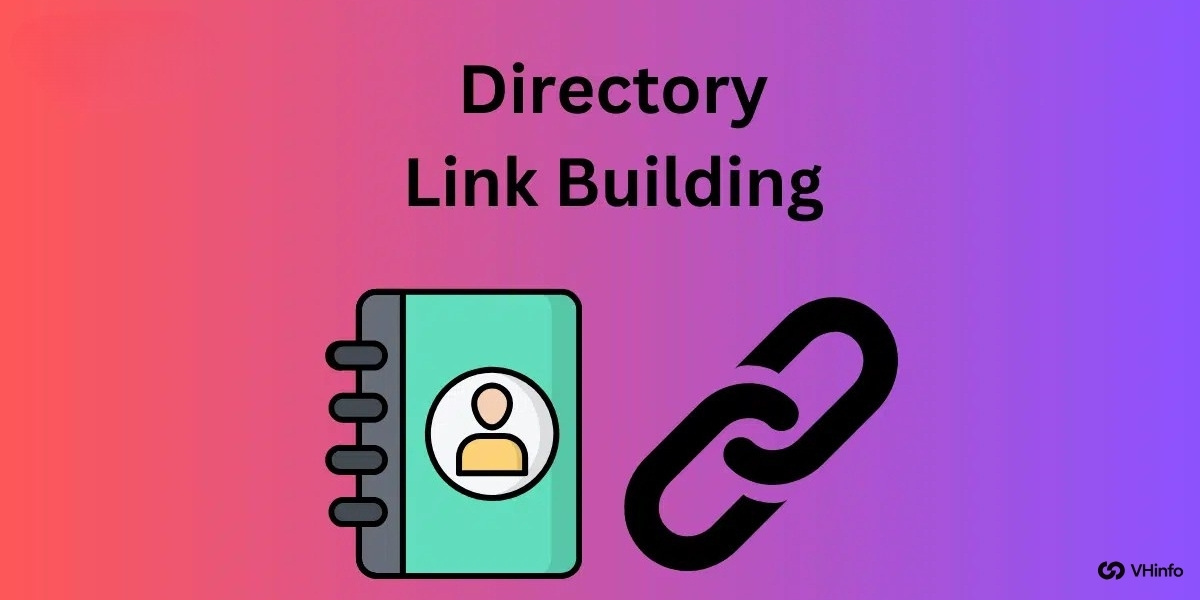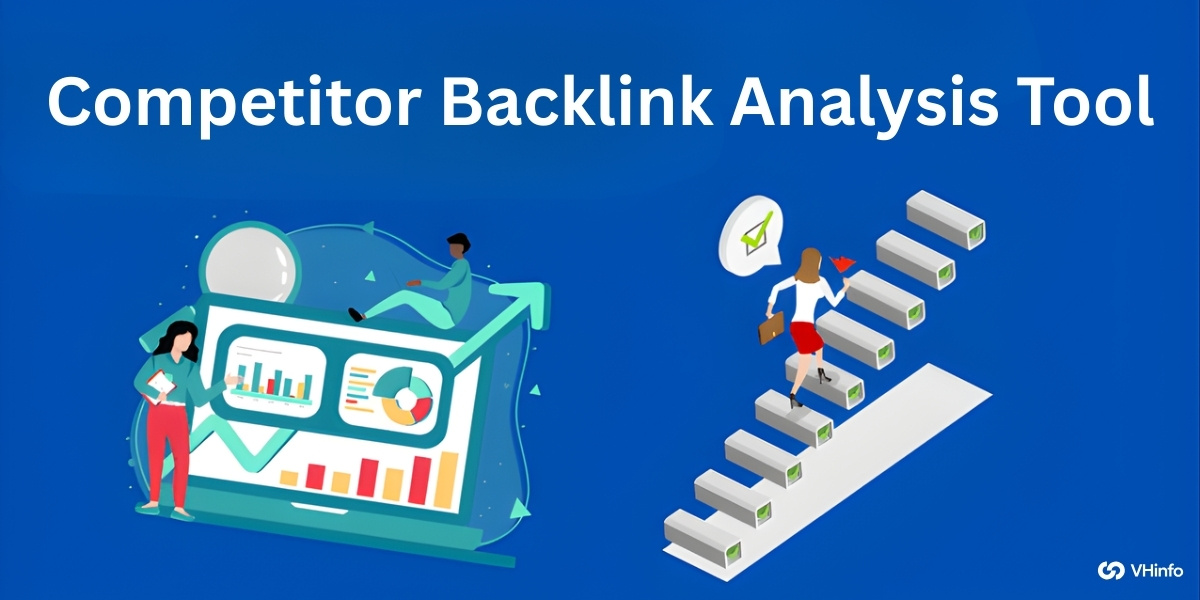Do you want your website to show up first in Google search results? To get to the top, a search engine like Google needs to see that your site is important and trusted. One of the main ways it figures this out is by looking at the links pointing to your site. Think of links as “votes.”
When one website links to another, it’s like casting a vote, telling Google, “Hey, this other site is good!” This system of votes is called link equity. But what happens when you have thousands of votes?
Some votes are strong, some are weak, and some might even be bad. What about the “votes” you give to your own pages? Managing all of this “link power” is a big job. It’s too much for most people to handle while also running a business.
This is where a link equity manager comes in. This guide will explain what a link equity manager is, what they do, and why they are a key part of any serious search engine optimization (SEO) strategy.
Getting this right is how you build a strong website that attracts more organic traffic and beats your competition in the search results.
What Is A Link Equity Manager?
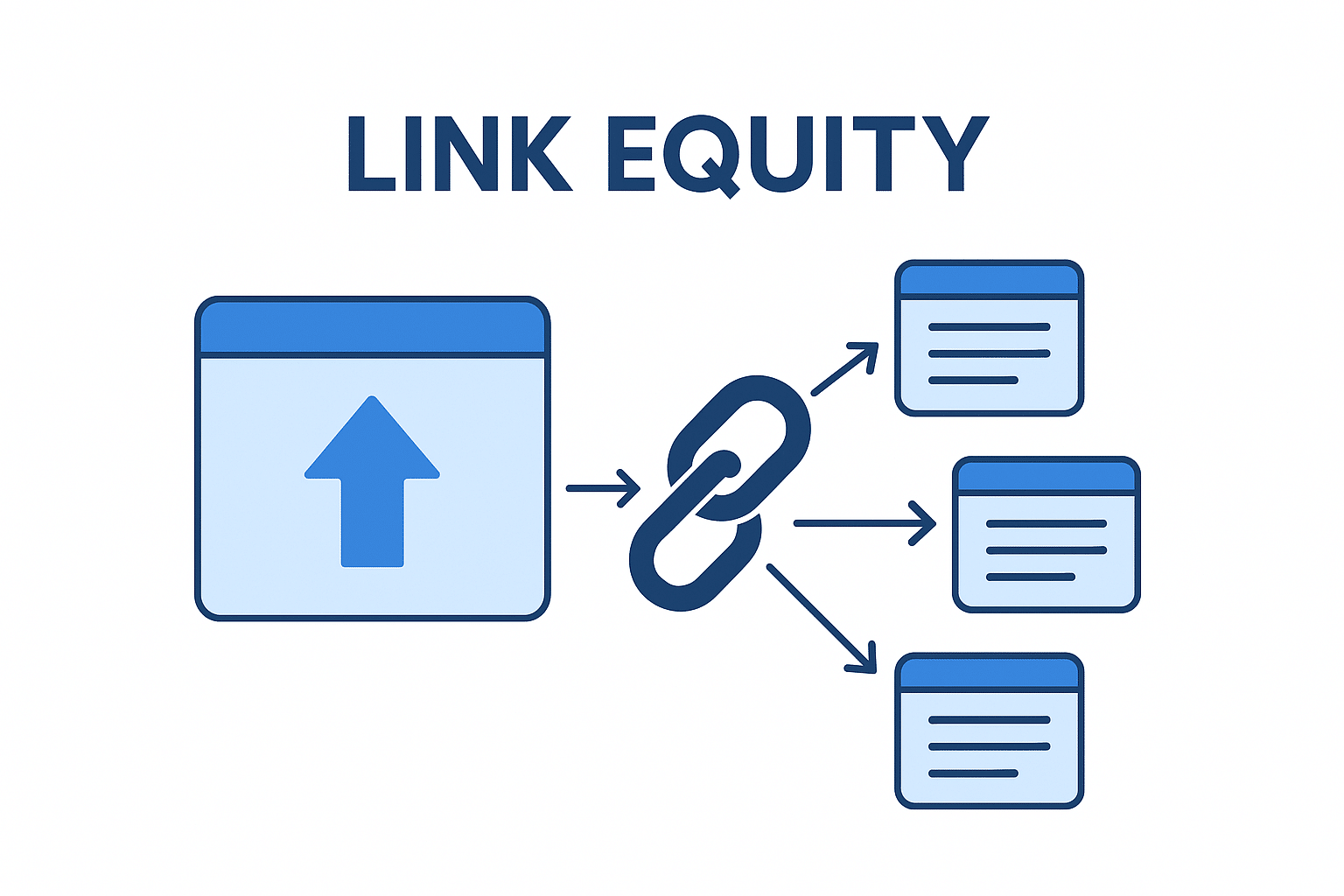
A link equity manager is an expert or a special tool focused on managing your website’s link equity. Their main job isn’t just getting new links; it’s about protecting, guiding, and using all the “link power” your site already has to improve your search engine rankings.
They act like a plumber for your website. If link equity is water (“juice”), the manager makes sure the pipes (links) are all connected, sends the water to the most important pages (like your product or service pages), and stops any leaks (broken links) that waste that power.
Defining Link Equity (Vs. “Link Juice” and PageRank)
You will hear a few terms that mean similar things:
- Link Equity: This is the professional term. It’s the value of a link that is passed from one page to another. A link from a trusted, authoritative website (like a major news site) passes a lot of link equity. A link from a small, unknown blog passes very little.
- Link Juice: This is a casual, popular nickname for link equity. It helps people picture the concept—like juice flowing from one page to the next.
- PageRank: This was the original name for Google’s system of counting links as votes. While the formula is now much more complex, the main idea is the same: links pass authority.
When a page links to you, it gives your page a “vote of confidence.”
This vote increases your page authority (the strength of that one page) and your domain authority (the strength of your whole website). A link equity manager works to get as many good votes as possible and uses them wisely.
Key Responsibilities: More Than Just Link Building
Many people think SEO is just about link building—the act of getting new external links (also called inbound links or backlinks). A link equity manager does that, but their job is much bigger.
Their key responsibilities include:
- Auditing the Backlink Profile: Looking at every single link pointing to your site to find good ones, bad ones, and lost ones.
- Optimizing Internal Linking: Controlling how “link juice” flows inside your own site. This is a huge part of the job.
- Managing Site Changes: Protecting link equity when you move your site, delete pages, or redesign.
- Cleaning the Link Profile: Getting rid of spammy links that could be hurting your site.
- Strategy: Deciding which pages need more link power and creating a plan to get it there.
They look at the entire site structure and link profile to make sure every drop of “juice” improves your SEO performance and supports a good user experience.
Link Equity Manager: Human Expert Vs. Software Tool
A link equity manager can be two things:
- A Human Expert: This is an SEO specialist who has deep knowledge of how links work. They create SEO strategies, analyze data, and make decisions. They use various SEO tools to do their job, but the strategy comes from their brain.
- A Software Tool: This is a program designed to do the work of a manager. These advanced SEO tools can audit your backlink profile automatically, find broken links, and show you how your internal linking structure is set up.
In reality, the best setup is a human expert using powerful software. An expert needs a tool to find the problems, and a tool needs an expert to decide what to do. At VH-info, our tools are built to give you the power of an expert manager. They help you see where your link equity is going, find opportunities, and fix problems, making it much easier to manage your site’s authority.
How A Link Equity Manager Strategically Boosts Your SEO?
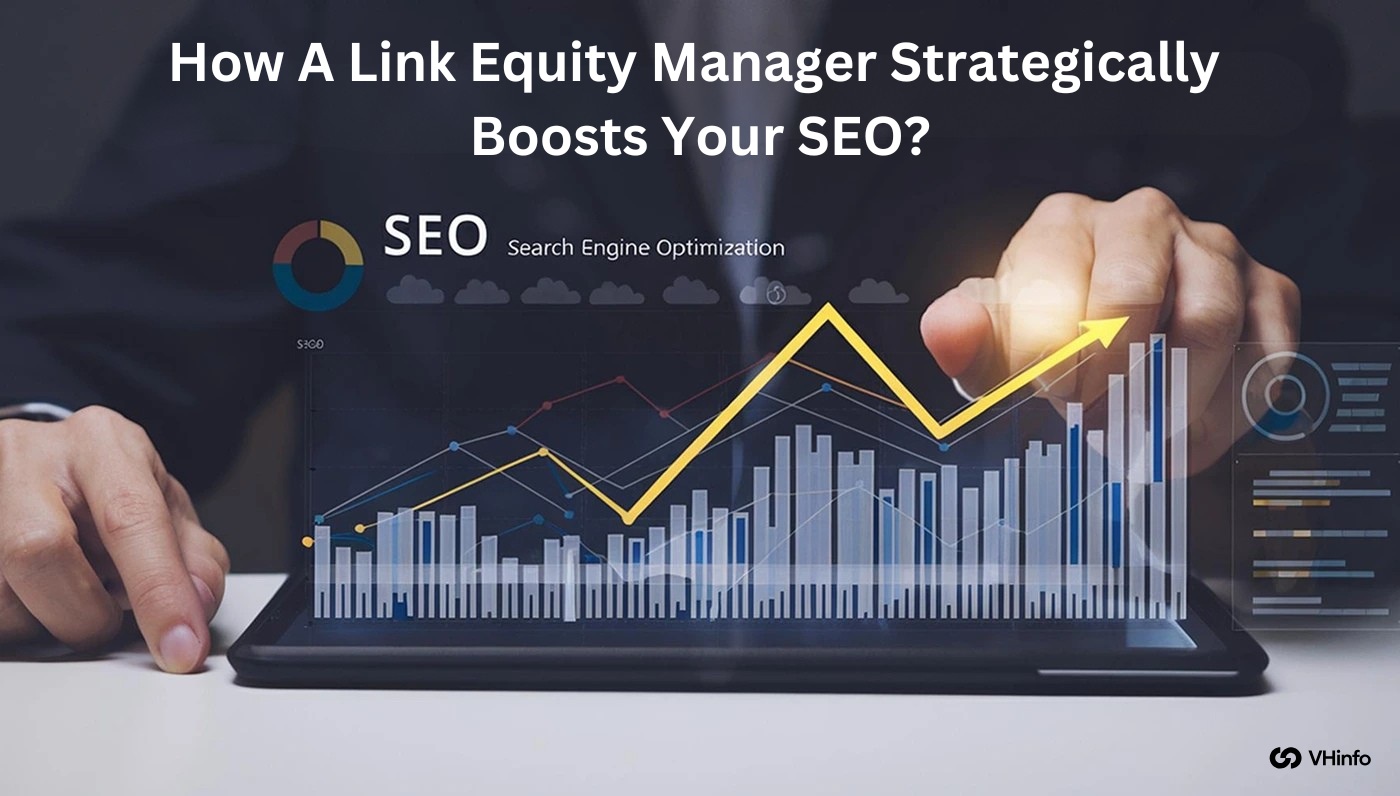
A link equity manager doesn’t just guess. They use proven strategies to directly improve your search visibility and search rankings.
Preserving Link Equity During Site Migrations and Redesigns
This is one of the most important jobs for a link equity manager. Imagine you move your website to a new address (a new domain) or just change the design.
- The Problem: If you just move or delete web pages, all the quality backlinks you earned over the years will break. They will point to pages that no longer exist (a 404 error). All that amount of link equity is instantly lost. Your search engine rankings can drop overnight.
- The Solution: A manager uses 301 redirects. A 301 redirect is a permanent “moved” note. It tells both users and the search engine that the old page has moved to a new page. This automatically sends almost all the link equity from the old page to the new one, saving your rankings. They also fix any new broken links that pop up.
Optimizing Internal Linking to Distribute Authority
How you link your own pages together is just as important as the links you get from other sites. This is your internal linking structure.
- The Problem: Many websites have “orphan pages” (pages with no internal links pointing to them) or send all their link power to unimportant pages. Their homepage might have a high domain authority, but their product pages have weak page authority.
- The Solution: A manager maps out the flow of “juice.” They use contextual links (links within your main content) from high-authority pages (like a popular blog post) to your important pages (like a “buy now” page). They use smart anchor text (the clickable text you see) based on keyword research to tell Google what the target page is about. This guides both users and link equity to where they need to go.
Reclaiming Lost Link Equity (Broken Links and 404s)
Over time, other external websites that link to you might make a mistake. They might misspell your page’s URL or link to a page you deleted years ago.
- The Problem: These broken links lead to 404 error pages. The value of a link stops flat. It’s like a “vote” that doesn’t get counted. You earned that link equity, but it’s being wasted.
- The Solution: A link equity manager uses tools like Google Search Console to find these broken inbound links. Then, they fix them. They might contact the other website and ask them to fix the link. Or, more commonly, they will set up a 301 redirect on their own site to send that “juice” from the broken URL to a live, relevant content page. An expert agency like VH-info specializes in this process, using a suite of tools and expertise to reclaim the lost SEO value.
Auditing and Sculpting the External Backlink Profile
Not all links are good for you. Some links are “toxic.”
- The Problem: Spammy links (also called toxic backlinks) come from bad neighborhoods on the web (like link farms or scam sites). If you have too many of these, Google might think you are trying to cheat the system, and your search rankings can suffer.
- The Solution: A manager regularly audits your entire backlink profile. They check the quality of links and the relevance of the link to your site. They work hard to get new quality backlinks from authoritative sites. At the same time, they find the toxic backlinks and tell Google to ignore them using a “disavow” file. This cleans up your link profile and protects your site.
Key Strategies Used by an Expert Link Equity Manager

A professional link equity manager uses a specific set of technical skills to control the flow of “juice” and maximize your SEO performance.
Conducting A Comprehensive Link Equity Audit
The first step is always a full check-up. This audit looks at every link related to your site.
- Inbound Links: Where is your “juice” coming from? They check the quality of links, the number of links, and which of your pages they point to.
- Outbound Links: Where are you sending your “juice“? Outgoing links (or outbound links) to other sites are normal, but a manager checks that you aren’t linking to spam or passing too much equity to other sites unnecessarily.
- Link Types: They check for Dofollow links (which are follow links that pass link equity) and Nofollow links (which tell Google not to pass equity). A good profile has a natural mix of both.
This audit gives them a complete map of your site’s authority and shows them exactly where the problems and opportunities are.
Mastering Redirects (301, 302) and Canonical Tags
A manager needs to be an expert at giving directions to a search engine.
- 301 Redirect: As we covered, this is a permanent “moved” signal. It’s the best way to pass link equity from an old page to a new target page.
- 302 Redirect: This is a temporary redirect. It tells Google, “This page has moved for a short time, but the original linking page is still the main one.” This is used for things like A/B testing or site maintenance and does not pass link equity in the same way.
- Canonical Tags: Sometimes, you might have two pages with very similar main content (like a product page that has a separate version for “blue shirts” and “red shirts”). This is “duplicate content.” A canonical tag is a piece of code that tells Google, “Of these similar pages, this one is the main, or ‘canonical,’ version.” This stops Google from getting confused and combines the link equity of all the similar pages into one strong page.
Identifying and Disavowing Toxic Backlinks
When a manager finds toxic backlinks during an audit, they must act.
If your link profile has many spammy links from low-quality or irrelevant sites, it’s a risk. A manager will first try to get these links removed by contacting the other site. But most of the time, these bad sites won’t respond.
The next step is to “disavow” them. The manager creates a list of all the bad links and submits it to Google through the Disavow Tool. This is a direct message to Google that says, “I don’t trust these links. Please don’t count them when you judge my site.”
This can help a site recover from a penalty or prevent one from happening, protecting its search traffic.
Using Deep Links For Maximum Impact
A “deep link” is any link that points to a specific page on your website that is not your homepage.
Many people make the mistake of pointing all their new external links to their homepage. The homepage ends up with all the page authority, while the important product and service pages get none.
An expert link equity manager knows this is wrong. When they are doing link building, such as writing guest posts (also called guest blogging) for other authoritative websites, they make sure the links point deep into the site.
They get relevant links to point directly to the most relevant content page that will help the target audience. This spreads the link equity around your whole site, making all your important pages stronger.
FAQ’s:
What is Link Equity?
Link equity (or link juice) is the value or authority that passes from one page to another through a link. Think of it as a “vote” that helps the linked page rank higher in search engine rankings.
Why is Internal Link Equity Important?
Internal link equity is how you spread that “vote” power around your own site. It helps Google find your important pages, shows Google which pages are most important, and improves the user experience by guiding visitors through your site structure.
How Do Internal Links Affect Link Equity?
Internal links pass the amount of link equity they receive. A linking page with high authority (like your homepage) can pass a lot of equity to a linked page (like a new product page), helping it get seen and ranked by Google faster.
They also show the topical relevance between pages.
Can Internal Links Pass More Equity Than External Links?
No. External links (especially from high authority sites) are what bring new link equity (new “juice”) into your website. Internal links don’t create new equity; they just distribute the equity you already have from your number of links and their quality.
How Does A 301 Redirect Affect Equity?
A 301 redirect passes almost all (90-99%) of the link equity from the old page to the new one. It’s the best practice for permanently moving a page so you don’t lose your hard-earned page authority.
How Does Link Equity Affect New Pages and Their Rankings?
A new page starts with zero link equity. It has no votes.
By using strong internal links from your other pages, you give that new page its first boost of equity. This helps Google find it (index it) and gives it a starting push in the search rankings, improving its search visibility. It’s a key ranking factor.
How Is A Link Equity Manager Different From A Standard Link Builder?
A link builder is focused on one thing: getting new external links.
A link equity manager has a much bigger, more strategic job. They manage the entire backlink profile (including cleaning up bad links), optimize the internal linking structure, and protect all link value during site changes. Link building is just one part of their job.
What Are The Most Common Tools A Link Equity Manager Uses?
Experts use a full set of SEO tools.
The most common are Google Search Console (to see how Google views your site and find broken links), Ahrefs, Semrush, or Moz (to analyze the backlink profile of any site), and site crawlers like Screaming Frog (to audit internal links). This is where partnering with a specialized agency like VH-info comes in. We handle the complex task of managing these tools and strategies for you.
Can Poor Link Equity Management Hurt My Website’s rankings?
Yes, absolutely. If you let broken links build up, you waste your authority. If you don’t fix spammy links, you risk a Google penalty. If you have a bad internal linking structure, your important pages will be weak.
All of this can seriously harm your search rankings and lower your organic traffic.
What Are the Best Ways to Maximize Link Equity On My Site?
The best practices are:
- Earn quality backlinks from authoritative websites in your niche.
- Build a smart internal linking structure that sends power to your most important pages.
- Regularly find and fix all broken links (both internal and external).
- Point deep links to relevant content, not just your homepage.
- Clean up toxic backlinks from your link profile.
Conclusion
A link equity manager is a vital part of any advanced search engine optimization plan. They are the guardians of your website’s authority, which is one of the most important factors in how Google ranks your site. They do more than just link building.
They are technical experts who audit, clean, protect, and guide your link equity to get the maximum possible SEO value from every single link. They make sure that all the hard work you put into your content marketing, guest blogging, and social media pays off in the search engine results. Managing all your inbound links, outbound links, internal links, and redirects is a complex, ongoing job.
But it’s what separates a site that struggles from a site that dominates the search results.
At VH-info, our SaaS link-building agency helps you implement the strategies of an expert link equity manager. We do the heavy lifting—finding your best link opportunities, fixing your worst problems, and building the right SEO strategies—to grow your organic traffic.

